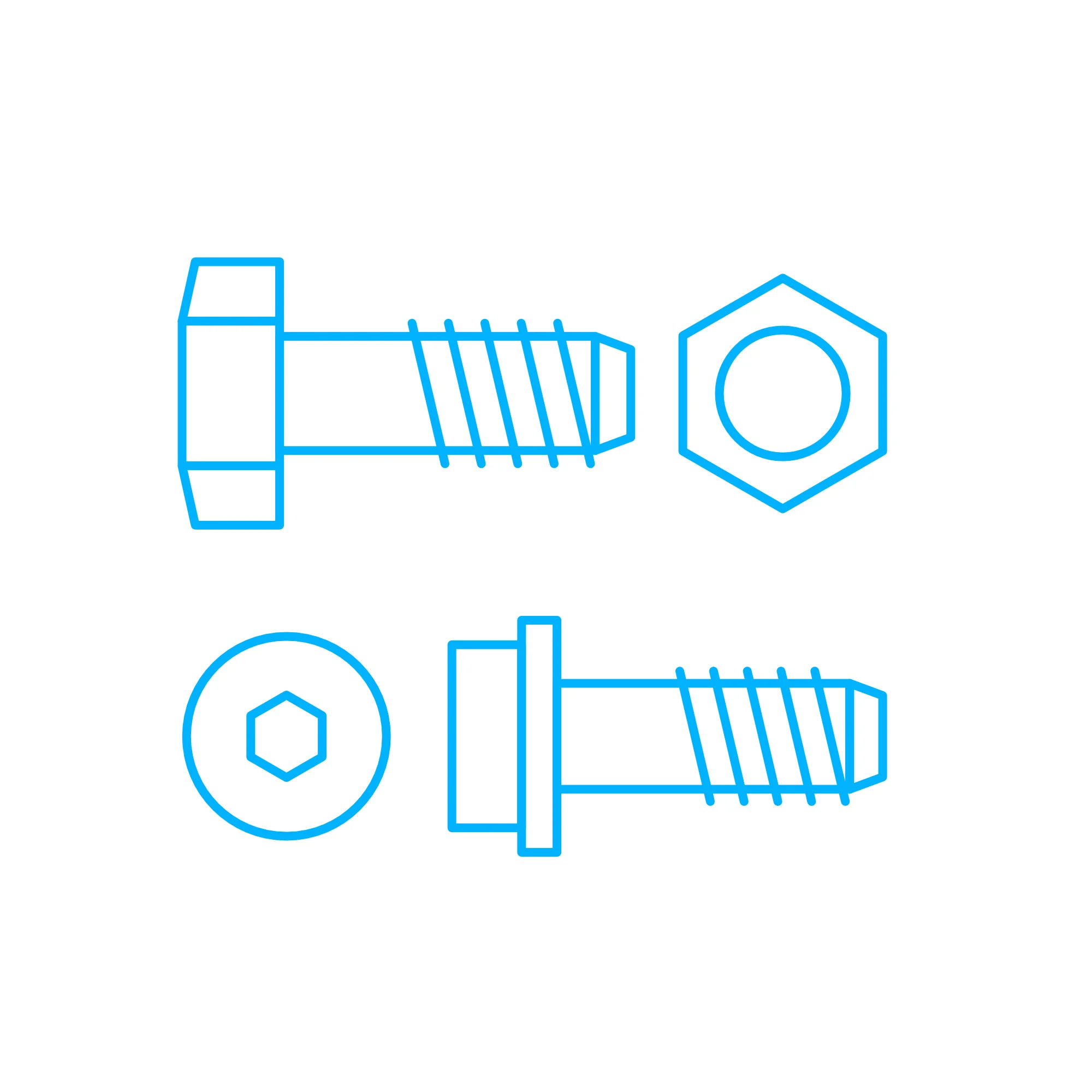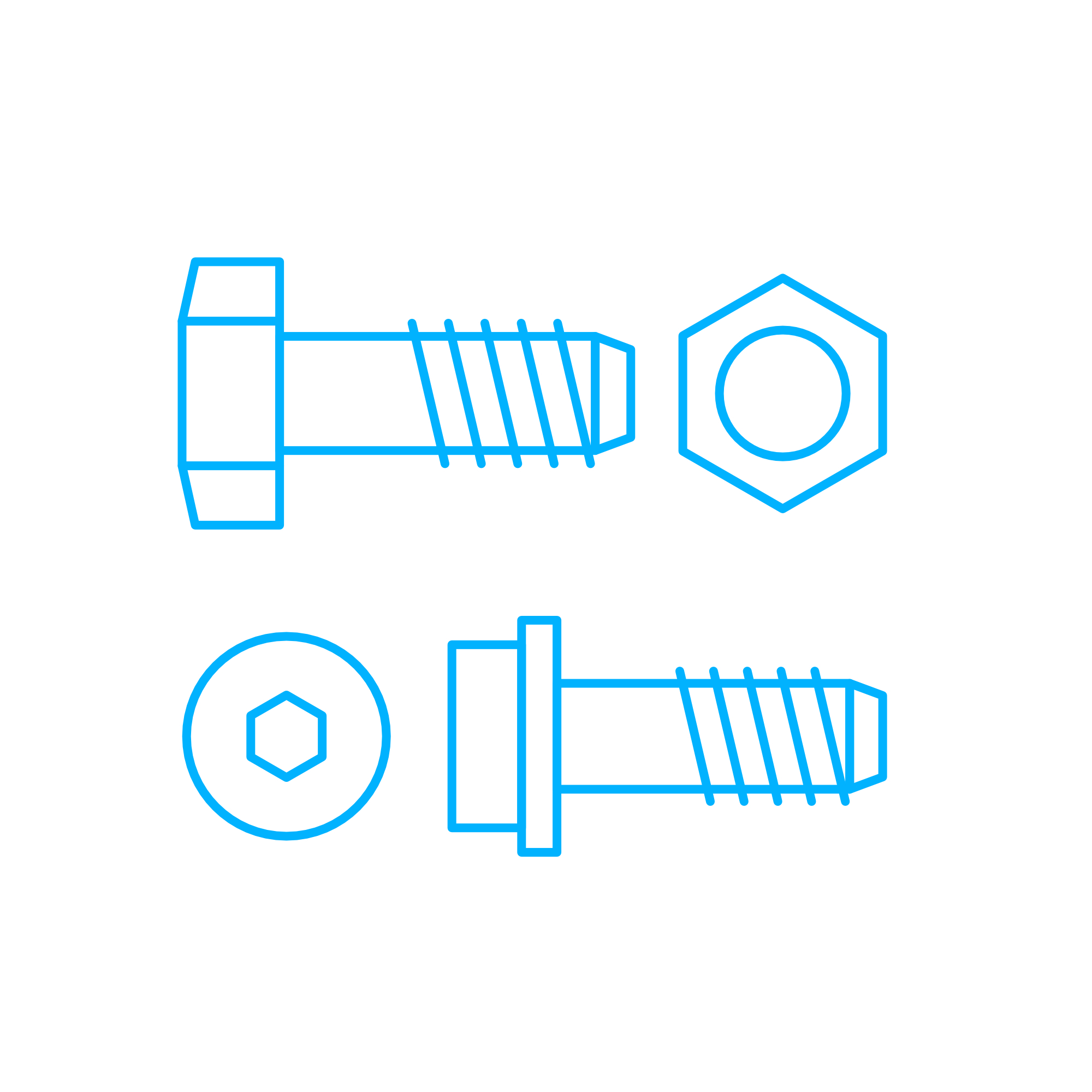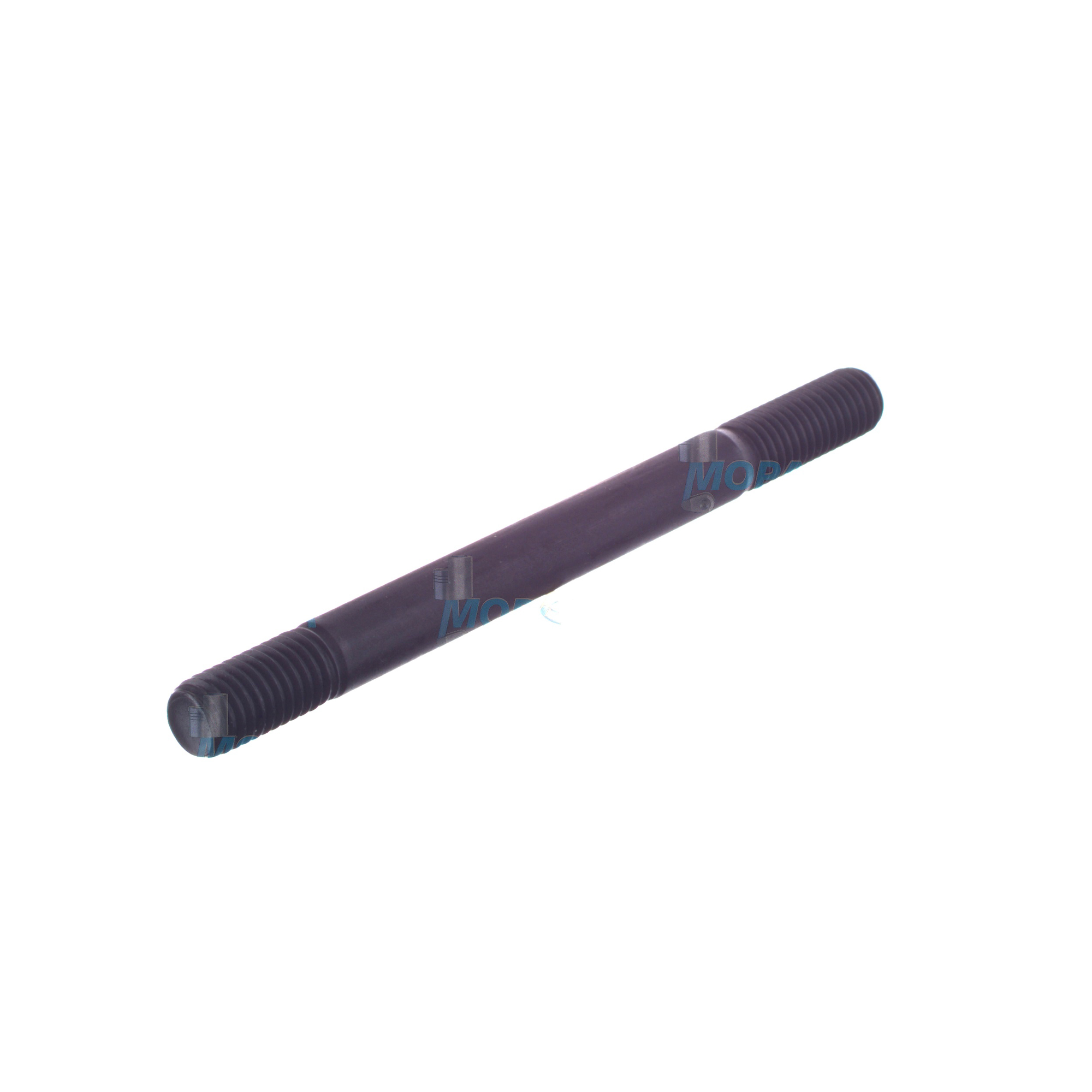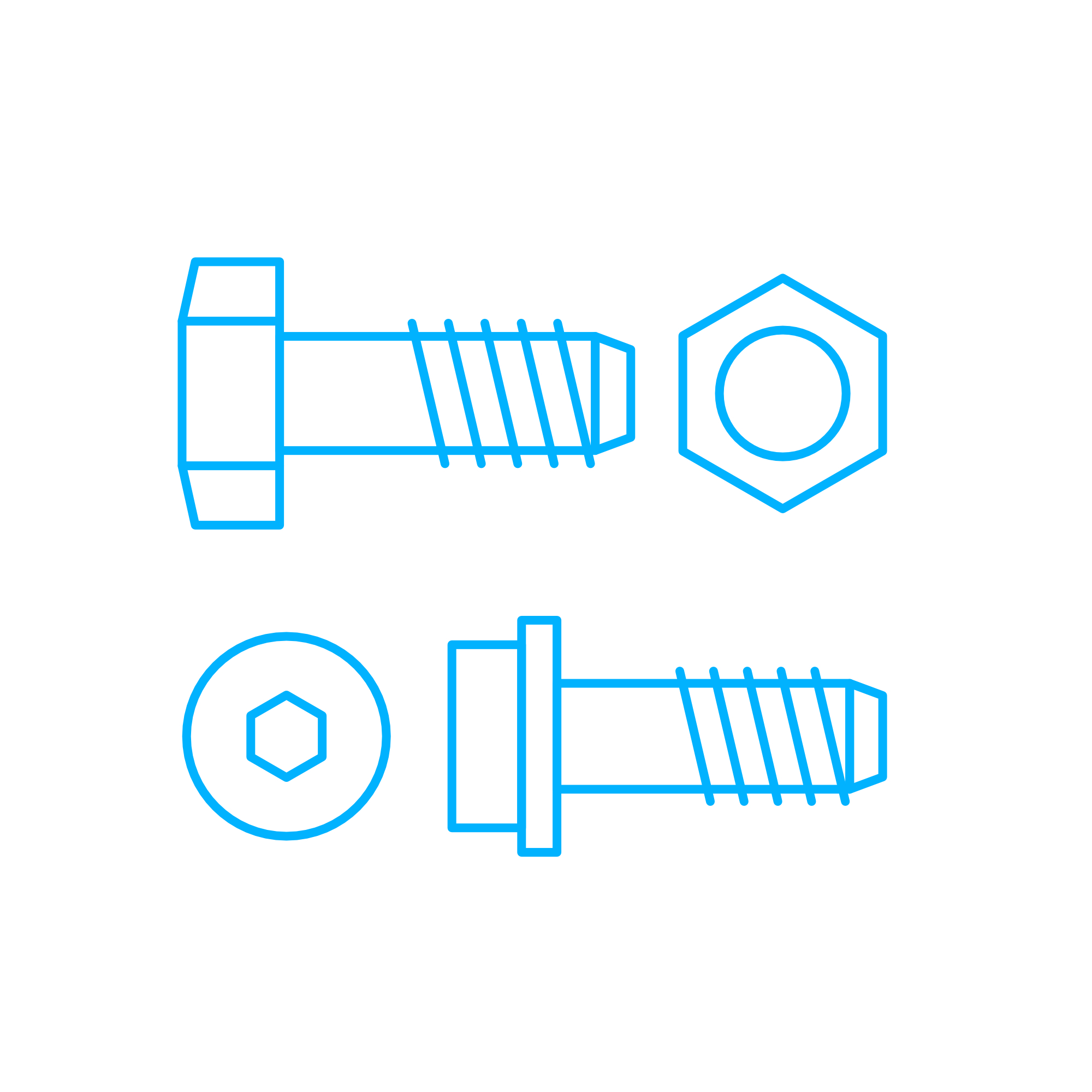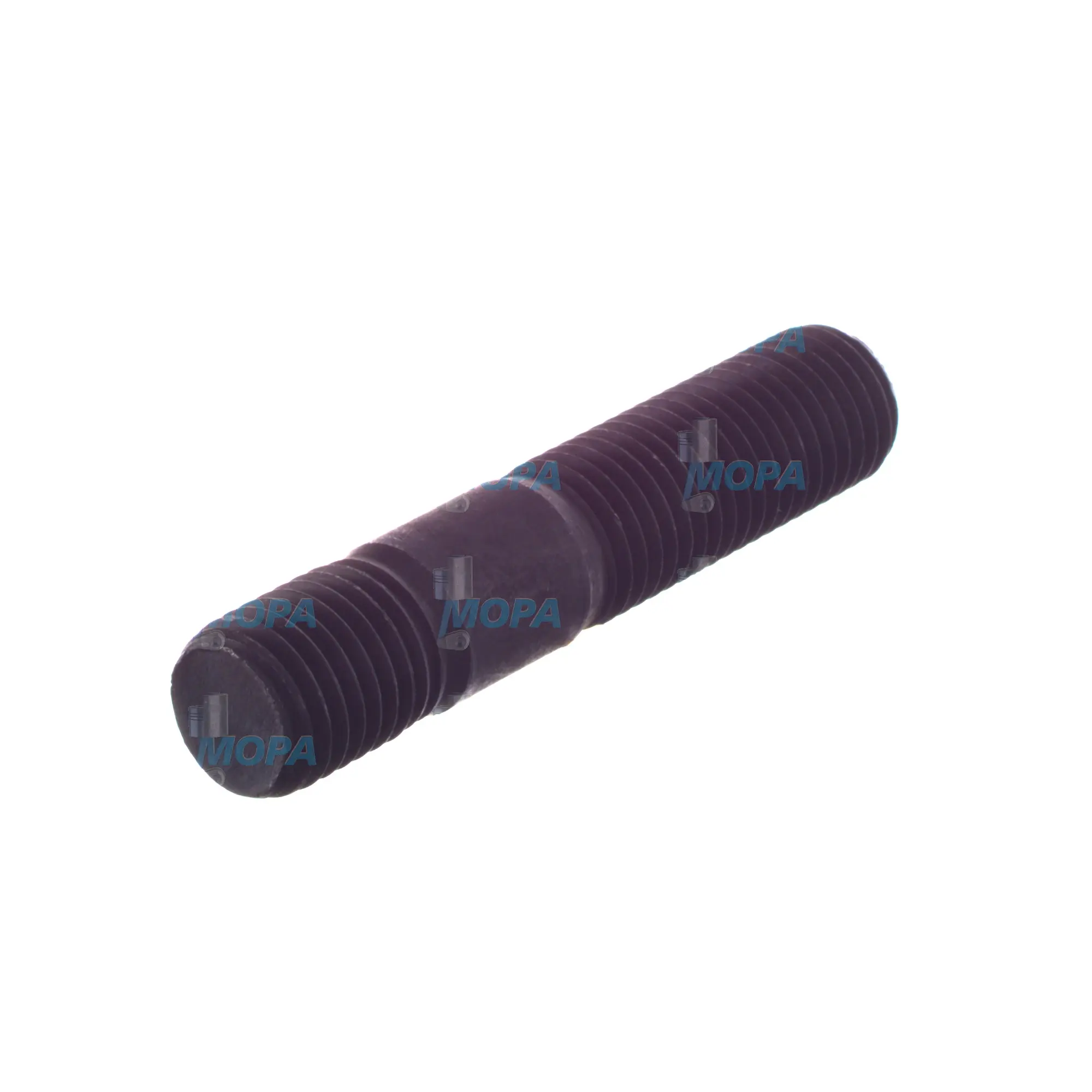STUD Screws for Engines – Precision Fasteners for Marine and Diesel Applications
Screws are critical mechanical fasteners that create and maintain clamping forces in engines. Whether securing cylinder heads, exhaust manifolds, turbochargers, bearing caps, or covers, they hold components together against combustion pressure, vibration, and thermal cycling. In heavy-duty diesel and gas engines, as well as in marine engine environments, screw sets and STUD solutions provide the repeatable preload needed to keep joints sealed, aligned, and safe.
Within the article category Screws you will find an engineered range of fastening elements: hex screws, socket head screws, set screws, and STUD types used where controlled preload, high temperature stability, or precise alignment is required. Correctly selected and applied screws directly impact performance, fuel efficiency, emissions compliance, and uptime by preserving gasket compression, preventing fretting, and resisting loosening during service.
Technical function of Screws in engines – STUD for marine engine and diesel engine
Screws convert tightening torque into axial preload that clamps parts together. This preload is what actually keeps an engine joint closed; the screw only experiences elastic stretch while the clamped parts resist separation. In high-output diesel engine applications, STUD and screw assemblies are used on cylinder heads, main bearing caps, gear housings, and turbocharger connections where stable clamping force is non-negotiable.
Compared with through-bolts, a STUD can be installed into the block or head with controlled thread engagement and then left in place, improving alignment and reducing wear in the tapped component during repeated service. For marine engine service, STUD hardware also minimizes risk of thread galling in softer parent materials and allows nuts to be replaced or re-lubricated without disturbing block threads. When specified as STUD OEM parts, metallurgy, heat treatment, and thread tolerances are matched to the joint design so that preload remains within design limits across temperature cycles.
Material and surface considerations are central to screw performance: high-tensile alloy steels provide strength and fatigue resistance; stainless or coated screws mitigate corrosion in salt-laden air; phosphate, zinc-flake, or moly-based coatings manage friction scatter for consistent torque-tension relationships. Correct thread form (metric, UNC/UNF, or engine-specific), pitch, and surface finish help prevent self-loosening under vibration. In critical joints, torque-plus-angle or hydraulic tensioning is used to precisely set elongation, ensuring repeatable clamping even under thermal growth and pressure spikes.
- · High tensile strength for stable preload under load
- · Heat-resistant materials and coatings for hot zones
- · Precise threads for reliable engagement and alignment
- · Corrosion protection suited to marine engine conditions
- · Compatible with torque, angle, or tensioning procedures
- · Available as STUD and screw sets for diesel engine assemblies
STUD Screws and their importance for engine reliability and service life
Screws are fundamental to engine reliability because every sealed interface and rotating assembly depends on controlled clamping. Loss of preload can trigger gasket leaks (oil, coolant, exhaust gas), blow-by at the cylinder head, manifold warping, bearing cap movement, or gear train misalignment. Over time, thermal cycling, vibration, relaxation of joint materials, and corrosion can reduce clamping force—especially if screws are under-strength, improperly lubricated, or reused beyond their yield limits.
Typical failure modes include fatigue cracking from fluctuating loads, thread stripping from improper engagement, fretting corrosion between mating surfaces, and galling when threads lack lubrication or suitable materials. In marine engine service, salt spray and humidity accelerate corrosion, which can pit shanks and threads, raising stress concentrations. Routine inspection, correct tightening sequences, adherence to elongation or torque-angle specs, and timely replacement with properly graded screws or STUD elements are essential to preserve engine accuracy and extend service intervals.
Advantages of OEM spare parts suitable for Screws – STUD OEM parts for performance and lifespan
Using OEM spare parts suitable for Screws ensures material integrity, dimensional accuracy, and tested compatibility with the engine maker’s joint design. This is critical where clamping force directly affects power density, emissions performance, and sealing reliability. Tight tolerances on thread class and surface finish reduce friction scatter, leading to predictable preload and fewer retorque events. Heat treatment and metallurgy are aligned with the joint stiffness and operating temperature, resisting relaxation and creep during extended duty cycles.
For purchasers and technical leads, the budget impact is clear: correct screws minimize unplanned downtime, gasket failures, and component rework. With STUD OEM parts, interchangeability is consistent across production batches, and documentation supports quality audits and class requirements. Packaging, protective coatings, and traceability help screws arrive ready for clean assembly, lowering installation time and rework risk. The result is stable performance, higher reliability, and longer service life for both diesel and gas engines.
MOPA – reliable partner for STUD and OEM spare parts Screws
MOPA supplies OEM spare parts suitable for Screws and STUD applications with a focus on speed, quality, and security in the trade of OEM parts for diesel and gas engines. Our team understands engine joint design and the role fasteners play in power, efficiency, and safety. We source to specification, cross-reference part numbers, and provide screw and STUD kits matched to head sets, manifolds, turbochargers, and auxiliary systems used in marine engine fleets and stationary power.
Expect responsive quotations, fast order processing, and logistics optimized for dockside or plant deliveries. MOPA emphasizes batch traceability, consistent quality, and carefully selected finishes and lubricants, so assemblies reach their target preload reliably. From one-off urgent needs to scheduled overhauls, we help technical decision-makers standardize on proven solutions and reduce risk across their engine portfolios.
Fast delivery of STUD for marine engine and diesel engine applications
When time is critical, MOPA delivers STUD and screw sets aligned with engine maker specifications, enabling efficient turnarounds and reliable recommissioning. Our inventory strategy and supplier network shorten lead times and maintain supply stability for key sizes, threads, and material grades.
Conclusion – STUD Screws and OEM spare parts for dependable engines
Screws are small components with a huge impact on engine integrity, sealing, and alignment. Selecting the right STUD and screw solutions, and replacing them with OEM spare parts suitable for Screws, preserves preload, enhances reliability, and extends service life.
With MOPA as your partner, you gain quick access to precisely matched fasteners for diesel and gas engines, combining technical correctness, consistent quality, and secure supply for every overhaul or repair.

